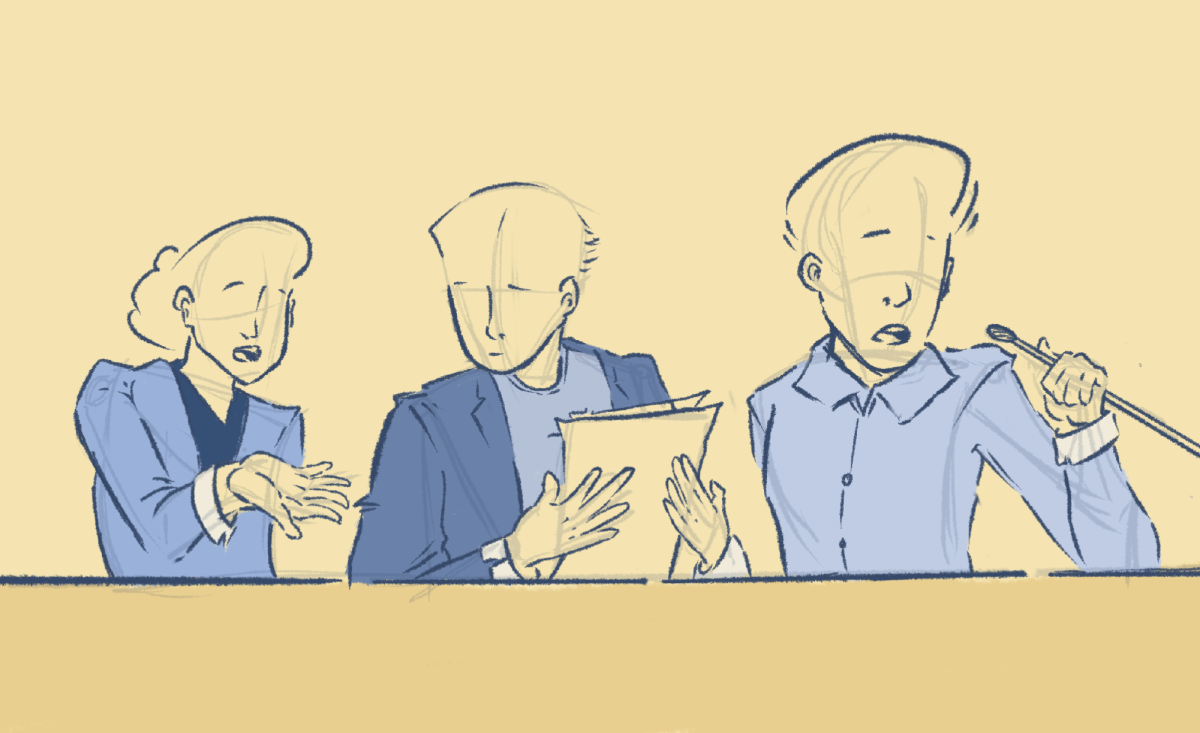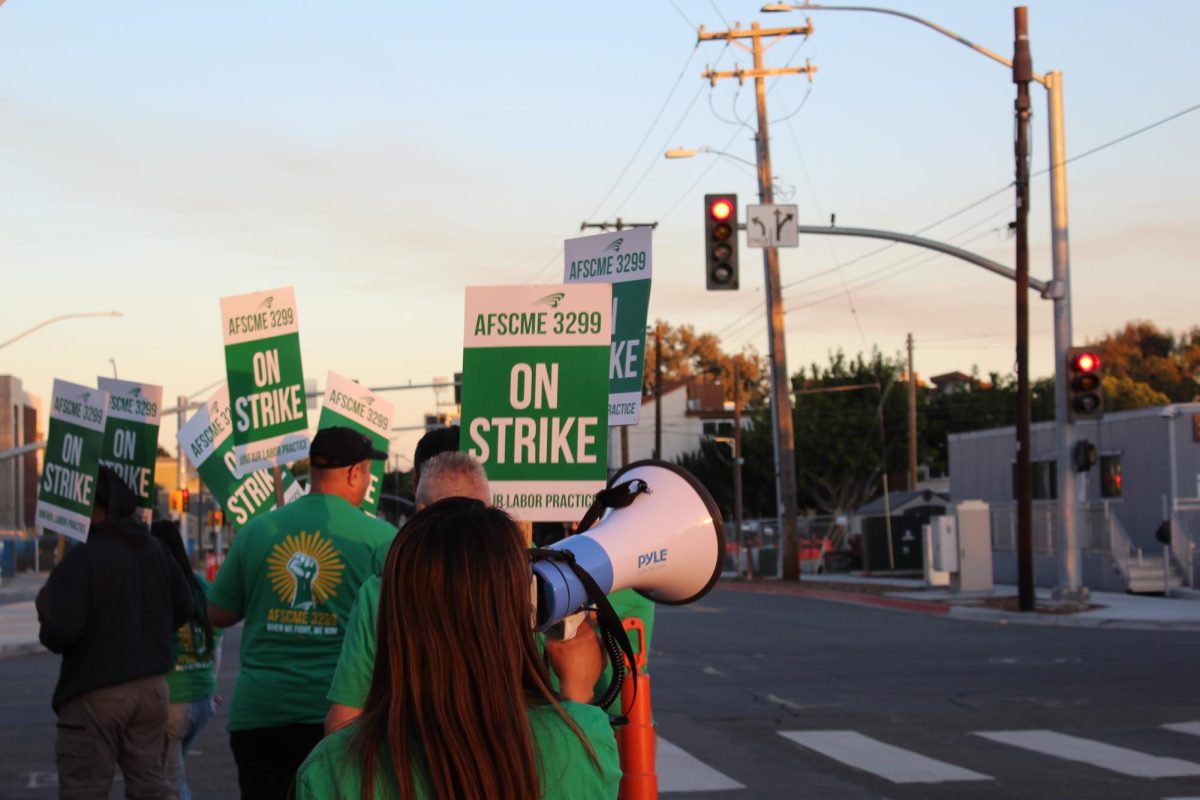
He’s known in the hip-hop world as Night Prowl Mike Gao — and, fittingly, a good spot to find him is at the music building after midnight.
No, he’s not a creeper or anything. He’s just a 24-year-old hip-hop beatmaker/ first-year computer-music Ph.D. candidate with a thing for staying up all night making music.
“Oh man, the one thing that my parents stress to me is to sleep early,” Gao said, slightly embarrassed.
But thanks to his nocturnal behaviors, an ill-beat app is on its way, direct to your iPhone.
“It’s the beatbox application that lets you beatbox into your phone to make beats,” Gao said. “I’m basically selling that to this company — the technology — for them to incorporate it into their own product.”
Of course, if you’re not into lurking in the dark in search of music freaks, there’s always a chance you can catch him onstage at a hip-hop or dubstep show on campus, holding down the crowd with a non-quantized beat set, pulling samples from around the world — Madlib style.
Sitting down in the recording studio at Conrad Prebys Music Center, Gao stood out from the somber contemporary musicians and composers. His long hair in a ponytail tucked underneath a dark flat cap, Gao told me he’s got no plans of backing off his hip-hop roots. In fact, he said he wants to bring the popular art form into the academic world.
“I have no intentions of harming any kind of curriculum or academic aesthetic mission with hip-hop, but only [to] offer kids a diverse experience that will have overwhelming interest and promote positive political dialogue — through music rather than violence,” Gao said.
In other words, he’s ready to give the music department some much-needed street cred.
“If UCSD let[s] me teach a hip-hop production class that a lot of kids are asking for, I think I can give our school a reputation for hot beats,” he said.
Collaborating with giants of the West Coast underground like the Living Legends, Del the Funky Homosapien and Exile, Gao is far from slipping under the musical radar.
“There’s people like Luckyiam [of Living Legends] who I’ve worked with, and he’s an interesting guy,” Gao said. “I don’t want to put people on blast, but there’s interesting stories. I mean, I did beats for him, and he wanted to take me on tour. He has certain connections to powerful people in the porn business. He can basically get free prostitution, even for his peoples like me. I have yet to take him up on the offer though.”
Still on Galapagos4, the hip-hop label that signed him at 18 years old, Gao’s nowhere near a creative standstill.
“Indie hip-hop is not doing very well,” he said. “Or all of music in general is not doing well. But, you know, Mike Gao projected this. Mike Gao told you at the beginning of this interview that technology was going to cause all of this to go down.”
So what are his plans for standing out in a dying industry? The tech-savvy artist’s got a formula, no doubt — even if he won’t tell us about it.
“I got some other ideas,” he said. “I’m about to slang other stuff … other music products.”
Though he’s taken his education further than most of his hip-hop brethren, the beatmaker is still struggling to legitimize himself in a narrow-minded academic environment.
“Music is the organization of sound,” Gao said. “It’s not organization of sound that agrees with a European tradition, or notes on a page. To the people who don’t feel like beat producers are composers: I’m a composer, so is Dilla [and] so are these 19-year-olds making original beats and playing to stadium crowds.”







